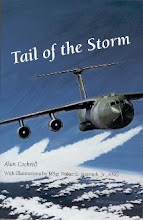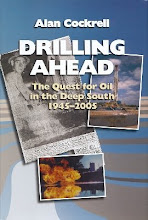NORDO is not my dog's name, but it would make a clever name for a dog. It's
pilot-speak for, “NO RADIO.” How can that happen in a modern
airliner? It did.
You Mach
Rangers out there know the drill all too well: three hours of boredom
is often followed by an hour of chaos. (Notice I said “chaos” not
“terror.” Terror is very bad ju ju. Chaos is just annoying stuff.
The difference between the two defines the professional.)
And,
following the rule precisely, the chaos began as my first officer
left for a head call. The pretty young flight attendant, Maria who
came to the flight deck to guard the door in his absence, was about
to acquire the “acid taste of fear.” (I wish I had invented that
phrase, but it belongs to the master—Gann.)
I had
just finished informing Maria, in a self-serving, amusing manner,
that we were over the much fabled Bermuda Triangle. Her eyebrows went
up. She began telling me about a scary TV program she had seen about
the Triangle only a few days earlier. Before her story ended the
radio receiver speaker (we use the speaker at cruise altitudes)
erupted in an ear splitting, screeching, screaming din. Maria saw me
turn forward and press my mic switch. “Santo Domingo, United 539 radio check, how copy?”
Nothing
but a soup of chaotic noise. I tried again. Nothing still. I went to
the previous frequency. Same. I was reaching for radio knobs and
switches across the cockpit and making unanswered appeals to the
cacophony spewing from the speakers.
The F/O
came back up. “Tom, we've lost radio contact!” I said. He heard
the speakers spewing their shrilling, buzzing clamor. It sounded like
a blend of a piece of chalk screeching on a blackboard and a flying
saucer sound from and 1950s sci-fi flick. Maria turned white as a
sheet as she stood watching us grabbing charts, dialing-in various
frequencies and trying in vain to re-establish contact with the world. We even tried New York on HF. But no joy on any
radio. The TV show Maria had seen about the Bermuda Triangle was
becoming her personal nightmare.
Marie timidly asked if we were in trouble. We told her we
would figure it out. Unbeknownst to us, she went back and told the
other flight attendants that we were over the Bermuda Triangle and in
serious trouble. They all got alarmed. I learned later that Maria was
so frightened she avoided cockpit visits the rest of the day; when a flight attendant's presence was required she sent one of the others.
After 15
minutes of useless attempts, which we figured was caused by our
antennas icing over in the clouds (not a common thing), I decided we
would declare an emergency when we got to our normal descent point,
80 miles ahead. Without a radio, the only way we could do that was by
squawking the emergency code, 7700 in the transponder—but we knew
that would not alert the Caribbean controllers of our problem unless
we were in radar contact. That close to Aruba, we hoped we would
be. That was to be hopeless hope.
So that
was the plan—squawk emergency at the planned letdown point and
start down for Aruba. Then we would change the squawk to 7600, the
standard NORDO code. But then another problem
popped up. Weather.
An
embedded thunderstorm appeared on our radar dead ahead. We had to
turn. “Okay,” I told Tom. “We'll squawk 7700 when we make that
turn. At the precise moment when I was about to change the code and
turn, Tom got a hard-to-read, garbled response from Beatrix
Control, in Aruba. They approved the turn.
I spun
the heading select knob 40 degrees right and the 757 tipped. The air
got rough and Tom made a PA announcement. “Flight attendants, be
seated!” We watched the ugly red splotch on the radar display slide
to our left. The air smoothed out and we relaxed. Now, we only needed
to get clearance from Beatrix control to turn back toward Aruba.
We
relaxed too soon. Our troubles were only beginning.
Stay tuned.
We are fliying at Flight Level 340. What direction
are we going and about what time of the day is it?




